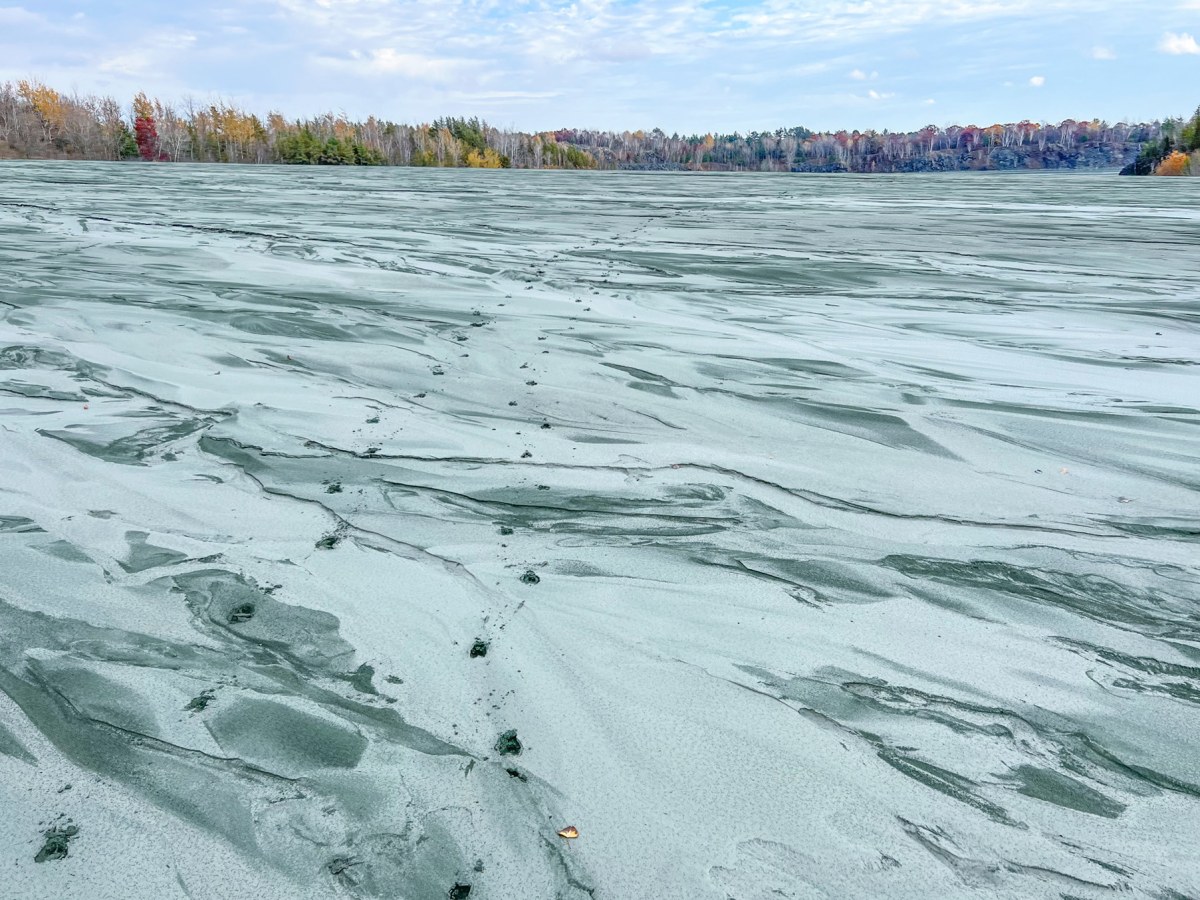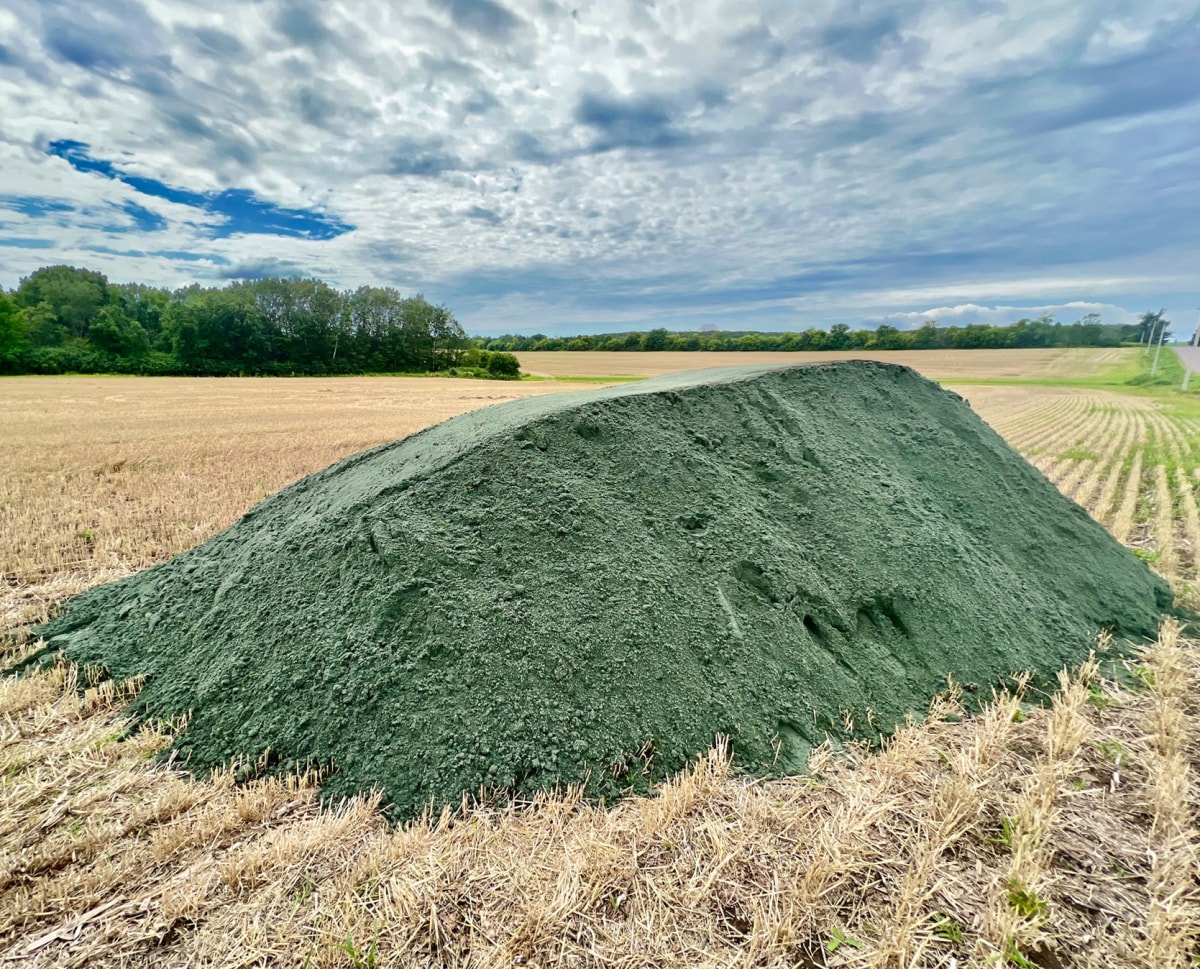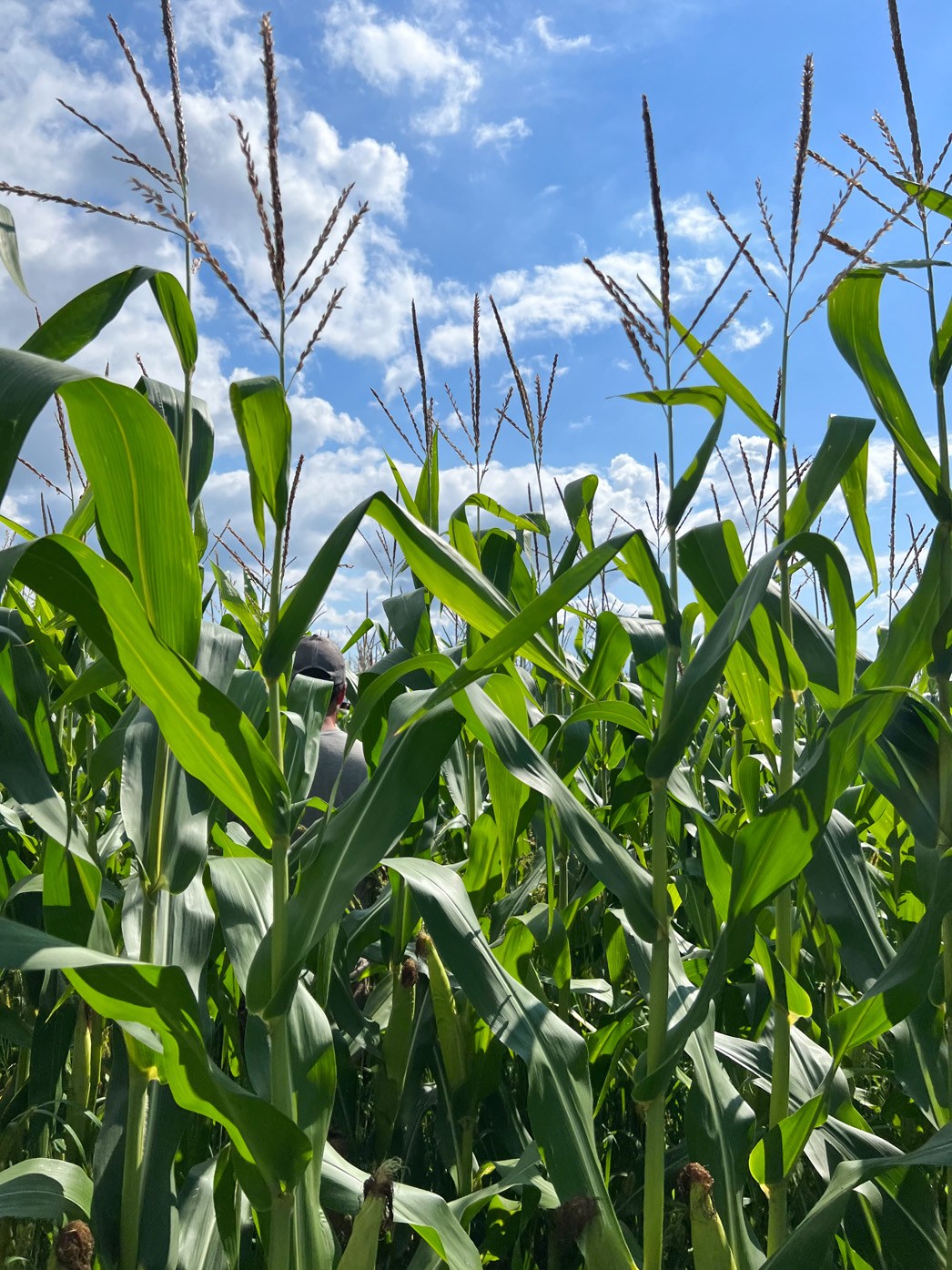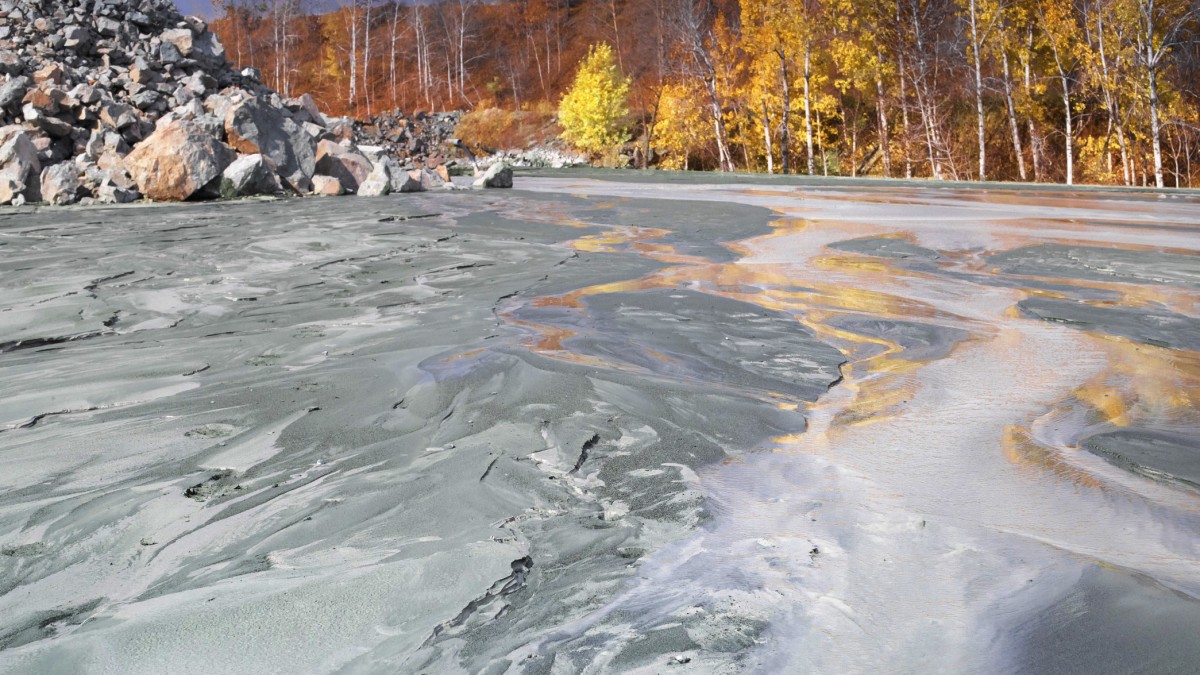Last fall, on a farm in Northern Wisconsin, a farmer spread 1,421 metric tons of crushed volcanic rock on his fields before planting soybeans and corn. The rock dust, from a startup called Lithos, serves two purposes: For farmers, it increases yields. It also helps capture carbon.
The startup spun out of academic research at Yale less than two years ago. Now it’s working with more than 80 farms in nine states. And in a new deal, buyers including Stripe, Alphabet, and Shopify have committed to pay the startup $57.1 million to remove 154,000 tons of CO2 over the next four years.

Deer tracks across a stockpile of millions of tons of waste basalt dust in Wisconsin [Photo: Lithos Carbon]
While some other companies use large machines to pull CO2 from the air, Lithos speeds up a geological process. When rain falls on certain types of rocks, a chemical reaction helps capture CO2. The carbon eventually runs off fields to waterways and reaches the ocean, where it’s permanently sequestered. Lithos helps that happen more quickly by spreading crushed rock in a specific way on fields. For each farm, the company uses its software to develop a custom plan based on the farm’s own soil chemistry.

Basalt delivered to a field [Photo: Lithos Carbon]
“Many types of rocks naturally absorb CO2 out of the atmosphere—they just do it over really long time scales. Enhanced weathering companies are trying a number of different approaches to make that go faster—to suck the carbon out of the air in months or years rather than hundreds or thousands of years,” says Nan Ransohoff, head of climate at Stripe, who also leads Frontier, a group of businesses that are working together to help carbon-removal startups scale by committing to buy their services. For Frontier, the new commitment to buy carbon removal from Lithos is its largest to date.
On the Wisconsin farm, six months after the rock dust had been applied, measurements showed that the process had permanently removed 175 metric tons of CO2 from the air. (That number reflects the net benefit of the whole process, so emissions from the transportation of the rock dust are subtracted.) The farmer, Paul Lapacinski, also saw his yields increase on one field by 36%.

Corn growing on a carbon capture farm [Photo: Lithos Carbon]
“I’m all about wanting sustainability and making things better on the farm. But it all comes down to the economic impact when it starts,” Lapacinski says. “Anytime something can add to the productivity of your land, with things like they are—especially with the rise in fuel and fertilizer costs—the better.”
The volcanic rocks, called basalt, are easy to find in large quantities as waste at quarries. And farmers already use another type of rock dust to improve their soil, so adding the basalt to fields can easily be incorporated into their routines. “The infrastructure already exists,” says Lithos cofounder and CEO Mary Yap. “It doesn’t require new technological innovation or new breakthroughs for us to scale this.”
Studies suggest that the approach, called enhanced weathering, could potentially remove as much as 2 billion to 4 billion tons of CO2 from the atmosphere per year by the middle of the century, or around 40% of all of the carbon removal that needs to happen.
Other approaches to carbon removal will also be needed, and Ransohoff says that Frontier is building a diverse portfolio of solutions. But enhanced weathering is promising, she says, “in part because it has the potential to reach gigaton scale at low costs, and to do so in a relatively short period of time compared to other pathways.”
It can be challenging to measure how much carbon has been removed by enhanced weathering. But Lithos’s approach to measurement, developed by one of the cofounders at Yale, can analyze samples from fields at a relatively low cost. Right now, the startup has “thousands of soil samples flying around to our different laboratories for measurement,” Yap says. But eventually that data will be able to inform models that can accurately predict the amount of CO2 captured without the need for continual sampling.

[Photo: Lithos Carbon]
The company is aiming to capture a billion tons of CO2 this decade. That’s possible, Yap says, because of strong demand from farmers who want to participate and no shortage of materials. The challenges that remain are operational. “One of them is a logistics gap,” she says. “We need to find the right number of truckers and work with the railroads to move the stuff around at massive volumes.”
The new deal with Frontier will reportedly help the company speed up its timeline by three or four years. To reach the billion-ton goal, the company needs “to drive cost curves down by improving efficiency in every aspect of operations,” Yap says. “The Frontier deal allows us to up the pace of rigorous, responsible data generation—helping us prime the pump before hitting the gas for responsible and quantifiable levels of scale.”


